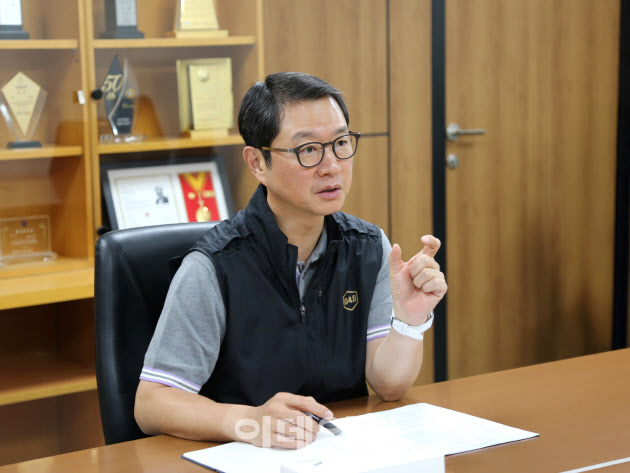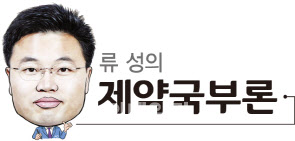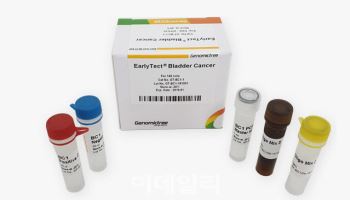Unauthorized reproduction or distribution is illegal and subject to criminal penalties.
Pharm Edaily enforces a zero-tolerance policy and will take strict action.
[By Yoo Sung, Head of Bio Platform Center, Edaily] SEOUL, South Korea. Korea’s pharmaceutical industry, despite its long history, has shown modest growth compared with other sectors. Many companies founded nearly a century ago still struggle with sales of only a few hundred billion won. The industry’s prolonged reliance on generics and distribution of multinational drugs has hindered innovation. Copying off-patent medicines and selling proven foreign products became the norm, while new drug development and overseas expansion were left behind.
The tide has begun to turn, however, as K-bio emerges as a new growth driver for Korea’s economy. From biotech ventures to leading drugmakers, the industry is now prioritizing novel drug development and global markets. IlDong Pharmaceutical, founded 84 years ago and long known for the vitamin brand Aronamin, is a striking example of this paradigm shift.
“We are rapidly reshaping IlDong into an R&D-centered company. A company’s future depends on competing with new drugs. The days of running a business on generics and distribution sales are over. We are actively pursuing entry into overseas markets, especially China and Indonesia, where growth potential is high,” said Yoon Woong-seop, vice chairman and CEO of IlDong, in an Aug. 26 interview with Edaily.
Yoon declared his ambition to expand the new drug pipeline and join the industry’s top five within a decade in both revenue and profit. Analysts say that reaching 2 trillion won in sales and 200 billion won in operating profit would put a company in that league.
To sharpen its focus, IlDong spun off its R&D division in 2023, creating a subsidiary called Unovia that absorbed about 20 innovative drug candidates.
Unovia is already making progress with its obesity and diabetes therapy (ID110521156), a GLP-1 receptor agonist now in Phase 1 trials. The drug mimics GLP-1 hormones, which regulate insulin secretion, blood sugar, gastric motility and appetite. As an oral candidate, it could become a dark horse in a market dominated by injectables.
Unovia has also completed Phase 2 studies of a P-CAB therapy for peptic ulcers (DW4421) and filed for Phase 3 trials. Last year it signed a co-development and domestic license-out agreement with Daewon Pharmaceutical on the drug.
 | | Yoon Woong-seop, vice chairman and CEO of IlDong. Photo provided by the company. |
|
IlDong’s corporate culture is also undergoing dramatic change. For decades, the company emphasized harmony, which fostered loyalty but sometimes blunted competitiveness. Last year Yoon launched the slogan “ID4.0 Winning Culture,” shifting the focus to relentless pursuit of victory. Workshops across R&D, sales, marketing and production have been held to set goals, with employees rewarded through bonuses and promotions for meeting them. More than 40 staff were recognized in the first half of this year, and over 100 are expected by year-end.
The results are already visible. IlDong posted consolidated sales of 614.9 billion won and operating profit of 14.3 billion won in 2023, returning to the black for the first time in four years. Since the fourth quarter of 2023, the company has reported seven straight profitable quarters.
He said, “As we continue to focus company-wide efforts on building a business structure that can sustainably maximize profitability, the company’s earnings will further improve. In addition, each affiliate is showing a clear turnaround in performance. Currently, all affiliates of the Ildong Pharmaceutical Group, including Ildong Holdings, are reporting improved results. Idience and Unovia successfully secured investment through joint development agreements with Dong-A ST and Daewon Pharmaceutical, respectively. The health supplement subsidiary Ildong Bioscience also turned to profit last year. In particular, if Ildong Bioscience succeeds in its ongoing initial public offering (IPO), it will make a significant contribution to improving the overall performance of the Ildong Pharmaceutical Group.”
He expressed confidence that the group’s results will continue to show an upward trajectory and that it will attract considerable attention in the market going forward.
“K-Bio today resembles Japan’s pharmaceutical industry in the mid-1990s, when billion-dollar companies and R&D-focused firms were on the rise, along with restructuring and mergers and acquisitions. The pace of change is only accelerating. This is the golden time for K-bio to make a quantum leap. To beat global giants, we must join forces through open innovation” Yoon said.




![i-Sens Soars 23% on EU CGM Expansion [K-bio pulse]](https://image.edaily.co.kr/images/vision/files/NP/S/2026/02/PS26021300327b.jpg)



![냉탕 온탕 오간 에이프릴바이오…실적 호조에 로킷·휴젤 상승[바이오맥짚기]](https://image.edaily.co.kr/images/vision/files/NP/S/2026/02/PS26021200275b.jpg)


